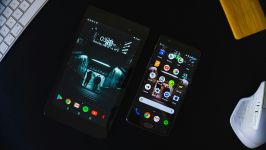On Thursday, August 25, Apple published a new patent application that suggests the high-tech company will incorporate anti-theft technology in its future iPhones.
Future iPhones Will Collect Thief's Biometric Data
According to Apple's new patent application, the company is interested to implement in its future iPhones an anti-theft measure that will capture covertly both a fingerprint and a photo of a phone thief. Some version of the technology presented in the patent application might go into future iPads and iPhones.
The Verge reports that Apple's patent application imagines a system that will capture biometric data of the person holding the iPhone when a "trigger condition" is present. Among the trigger conditions could be the detection of an unauthorized user attempting to bypass the iPhone's security features or an unauthorized access coming from a third-party device.
This biometric information may include one or more images of the current iPhone user, one or more fingerprints, audio of the environment, video of the current user, forensic interface use information and more, according to details provided by the patent abstract. According to Apple Insider, the unauthorized user's data could be sent to a remote server for further analysis or stored locally on the device. The stored biometric information may used then for identification of the unauthorized user.
Legal Issues Involved In Capturing Biometric Data
There are some technical and legal issues challenging Apple's idea. Capturing a phone thief's biometric data like fingerprints and photos raises some privacy and legal red flags. Even if it is a feature designed for consumers protection, covertly capturing and storing biometric information could tarnish Apple's reputation with regards to user privacy.
Apple used to brag about its decision to not store any unencrypted information. Apple CEO Tim Cook has routinely used the company's record on privacy to present in a favorable light Apple hardware and software. The company did not take any steps back on the user privacy issues even when confronted with FBI investigations. Such an anti-theft system might be unprecedented.
From a technical perspective, Apple's TouchID fingerprint-reading technology implemented in iPhones today requires that users hold down their finger in a variety of angles and numerous times to accurately capture the print. If the company plans to introduce such an anti-theft system future versions of Apple's fingerprint scanners and Touch ID will need to be able to collect fingerprints in a more efficient manner.









